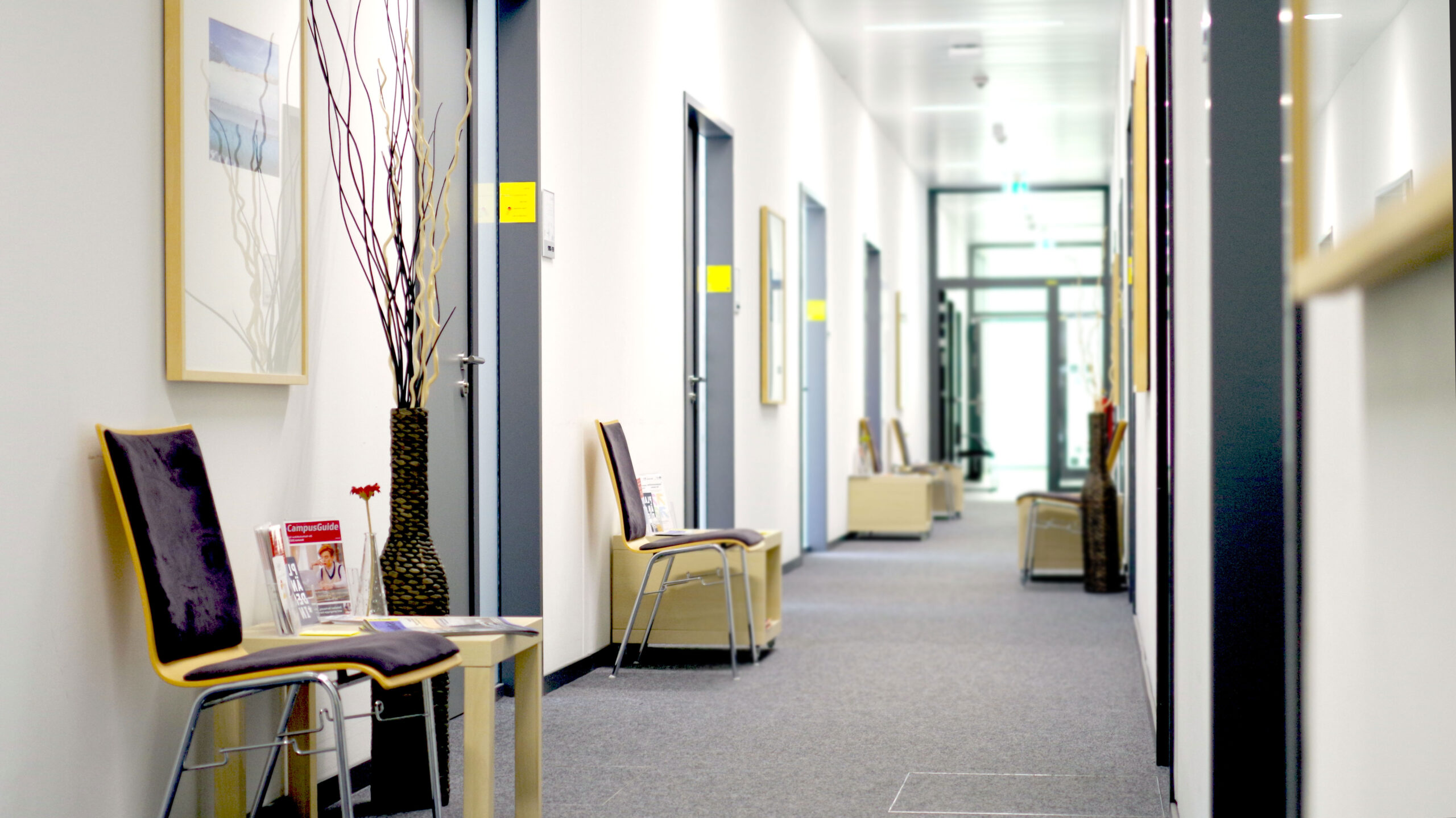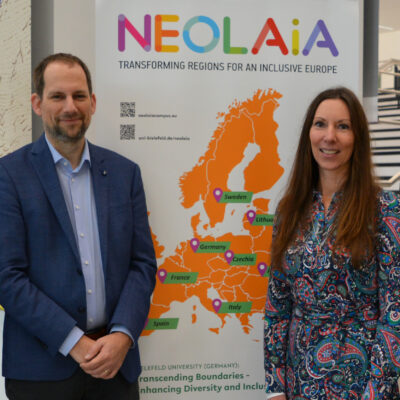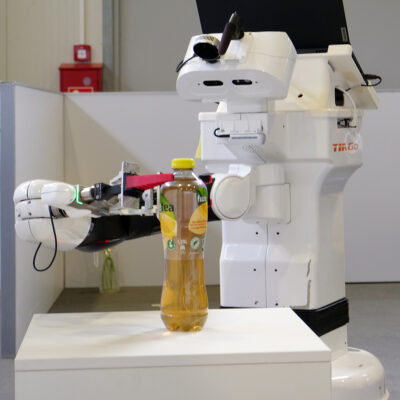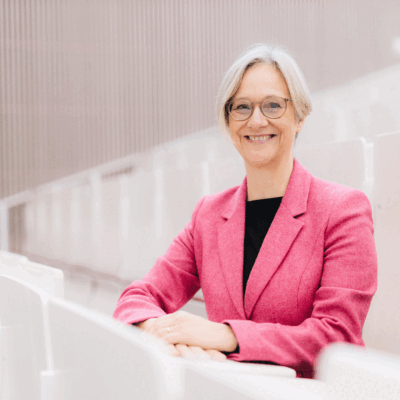When it comes to studying at a university, there are always questions, and yes, problems, not just relating to general academic issues, but also personal ones, for which students can seek out advice and counselling. At Bielefeld University, the Student Advising and Counselling centre (Zentrale Studienberatung, “ZSB” hereafter) celebrated 50 years of service this past September. In an interview, Dr. Wolfgang Neumann, who was in charge of setting up the ZSB, Professor Dr. Ruth Großmaß, who was a consultant for many years, and Dr. Ursel Sickendiek, the current director, talk about what the ZSB was like back then – and how things are now.
By the beginning of the 20th century, there were already a few so-called academic advising centres, in Berlin and elsewhere, that provided information to prospective and current students – similar to the general academic advising and counselling centres of today. Later, the 1960s saw the emergence of an increasing number of institutions that recognised the stressors associated with studying and began offering psychological counselling. How was the ZSB at Bielefeld University conceptualised when it was founded in 1973?
Wolfgang Neumann: Although the ZSB – which, by the way, was initially called ‘Central Student Counselling’ – was conceived and designed to be an integrated counselling centre from the very beginning, offering general as well as psychological services, our initial focus was indeed more on psychotherapeutic counselling. The university very clearly wanted to have the ZSB, but at that time, psychotherapeutic counselling services at universities were not entirely uncontroversial, as there was the issue of funding, among other considerations. But at Bielefeld University, it was never really up for discussion to do away with the ZSB, and with the exception of a few disputes, I have always felt very supported here.
Ruth Großmaß: When I started working at the ZSB in 1976, the Rectorate placed greater priority on tasks relating to general academic advising for my role. I therefore got very involved in this area, and since then, we have held, for instance, study skills workshops and specialist advisor trainings. Another aspect that I helped bring into greater focus at the ZSB was an emphasis on women’s issues. This was surely due in part to the fact that I was the first female counsellor on the advising team. There were also two female student assistants and one and a half positions in office administration that were filled by women – so the heart of the ZSB was female, so to speak.
How has the concept evolved since then?
Ursel Sickendiek: We have continued to pursue the concept that the ZSB has been developing over the years, that is, we hold a holistic, integrated understanding of advising and counselling. This means that us counsellors are qualified for both general academic advising as well as psychosocial counselling. We don’t want to separate this into one team that provides general information for academics, and another team that deals with the psychosocial difficulties of studying, as the crossovers between these two areas can be quite fluid. Sometimes, a question first presents as an informational issue, and then, in conversation, deeper questions or problems emerge.
Neumann: Both fields operated, of course, under different conditions: it was often more feasible in the short term to help a person who just needed some information than to help someone work on their personality or emotional state, which often requires more time. That said, from my point of view, both forms of advising and counselling were and remain justified as part of the ZSB – and are very important in parallel.
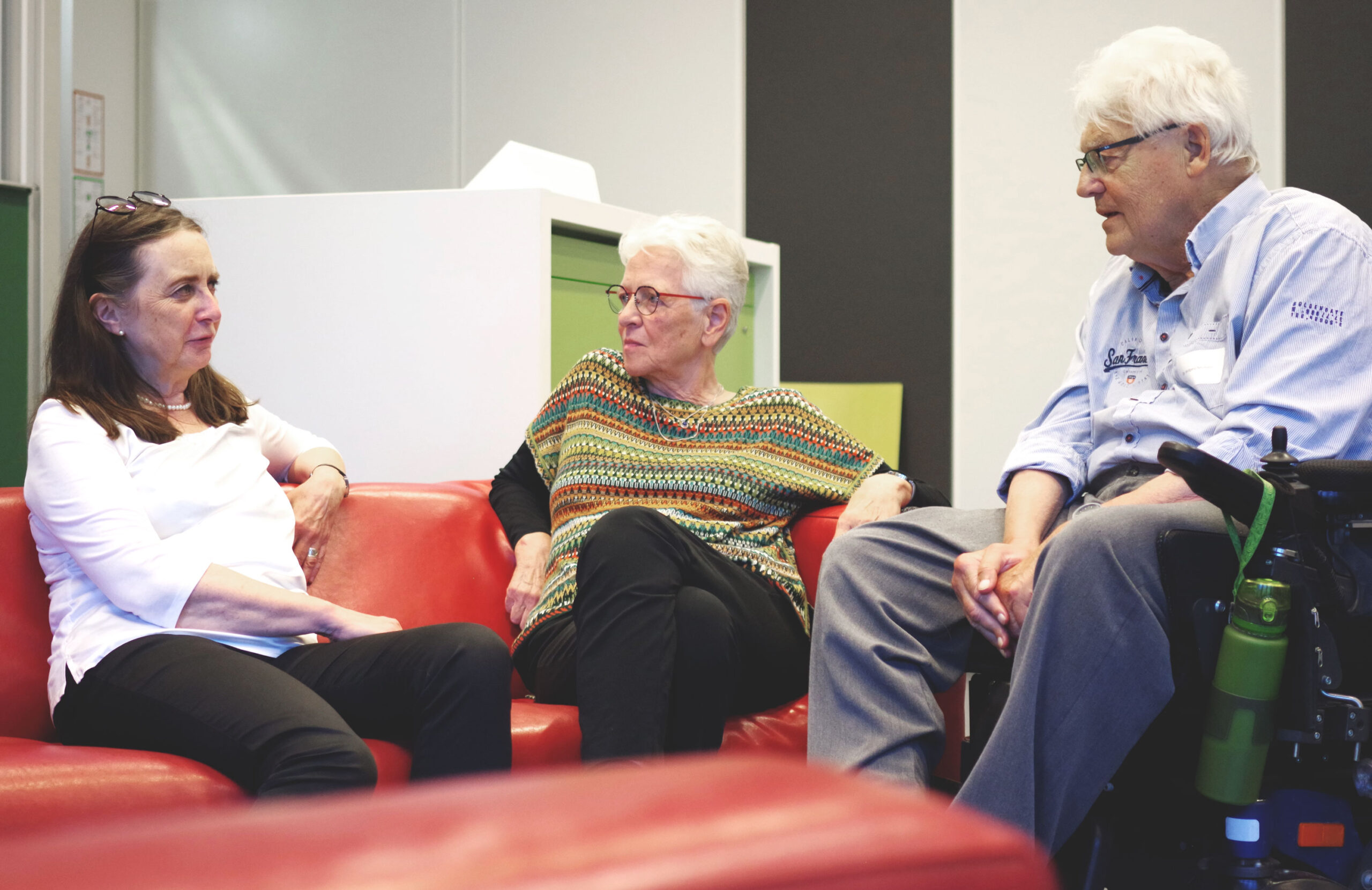
© Elena Berz / Bielefeld University
How often are the advising and counselling services of the ZSB requested?
Großmaß: By 1978 at the latest, the ratio had reversed. Before that, probably because of the orientation described at the beginning, psychological counselling was requested far more frequently, but since then, the number of people using the centre for academic advising has been much higher.
Sickendiek: I can confirm this: every year, we have four to five hundred people seeking psychosocial counselling and, leaving registration clearing aside, some 1,500 to 3,000 people seek general academic advising during our centre’s office hours. The latter is used not only by students, but also by pupils and other prospective students, including university graduates.
Over the past decades, to what extent have the issues that students bring with them to the ZSB changed?
Neumann: I think that over time, students have been seeking psychological counselling for similar issues, because the underlying emotions have not changed. Back then, the most common reasons included anxiety, negative moods, procrastination, and problems with motivation.
Sickendiek: … and today, this has largely remained the same.It might be that different topics come into focus in different phases, as in the case today with issues surrounding ‘social life’ and ‘finding connections’, as it has become even easier to avoid social contact with hybrid teaching and learning formats.
Großmaß: I’ve also noticed that the general issues don’t change much – sometimes new ones are added, and others are relegated to the background – but the content of the issues often does change. The world changes, and the university changes, so it’s only logical that problems get addressed in different ways over the decades.
What is the relationship between individual consultations and group offerings?
Neumann: Individual counselling was always the first priority, but these could feed into group work.
Großmaß: Exactly, in individual consultations we are dealing with individual issues, but this often results in topics for group offerings that bring people together.
Neumann: I did a lot of group work at the university, bringing students together to learn from each other, to help each other. This was well received – I led a men’s group for over 15 years, for instance.
Sickendiek: Nowadays this is a bit more difficult, as the number of registrations for group offerings or workshops is quite low, or the registration rate is often higher than the actual participation rate.
Why might this be the case?
Neumann: I think that the willingness to commit is not as high as it once was.
Großmaß: And it might also depend on how the group is positioned: it makes a difference whether, for example, a women’s group is offered that can be understood as a general invitation to personal growth, or whether the topic of the group confronts people with their own weaknesses, so to speak, like ‘final thesis work’.
Sickendiek: I could see that, too, because in our country there are of course exceptions to the trend described. A queer group, for example, tends to fall into the first category. Another reason could also be the differentiation of students’ daily lives: it is possible to study in hybrid form or online in part, and not everyone moves to Bielefeld to study. In short, students’ daily lives have become very different, so that for many, even meeting in small groups to do a presentation, for example, poses a challenge.
Does the ZSB also provide advising to instructors?
Neumann: Yes of course. From the beginning, we were also open to instructors.
Sickendiek: And that remains the case today.Instructors can contact the ZSB if they are concerned about individual students or doctoral researchers, for example, and are wondering about how to deal with the situation. This doesn‘t happen that often; the number of such inquiries we receive per year is sometimes in the single digits. However, these counselling sessions are sometimes very intense because the underlying situations are often critical, perhaps even distressing, and dealing with students in such cases can be challenging for instructors. In addition to this, once a year we offer an event together with the Social Psychiatric Service on working with students experiencing mental health disorders. Teachers can learn about the topic – not just during an acute situation – and the event is always well attended.
Does the ZSB cooperate with other bodies within or outside the university?
Großmaß: It became apparent to me at the anniversary celebration that there is a strong network within the university – with the General Students’ Committee (AstA), staff councils, equal opportunity officers, the student union, and secretaries from the examination offices … these are not necessarily cooperative relationships that are clearly visible to the outside, and for good reason, because some of the topics are better not negotiated in public, the ZSB must protect the trust placed it in – but such collaborative partnerships are certainly essential to the ZSB’s work.
Sickendiek: Definitely! In addition to the people and institutions mentioned above, we also work closely with the International Office, Student Office, with our Centre for Teaching and Learning, and with the university Career Service. Sometimes we are the bridge that connects those seeking advice to get to the right place. And in this capacity, it is important that we can draw on a large network, that the people on the other side of the bridge are open and approachable, and that we can answer questions or tackle problems together. Such networks also exist outside of the university, and in the past, Wolfgang Neumann and our other predecessors contributed significantly to such networks: the Psychosocial Association, which Neumann co-founded at the time, is still today an important forum in Bielefeld that provides support and networking to various counselling services. As an example of how this works, we can refer clients to the Psychological Women’s Counselling Service if there is an expert there for a particular concern, as well as to other specialized counselling services.
Neumann: From the very beginning, it has been very important to me that the ZSB have an impact on the city. This means that the university does not act in isolation, serving only the campus community, but that we are reach out to the city with our skills and services.
